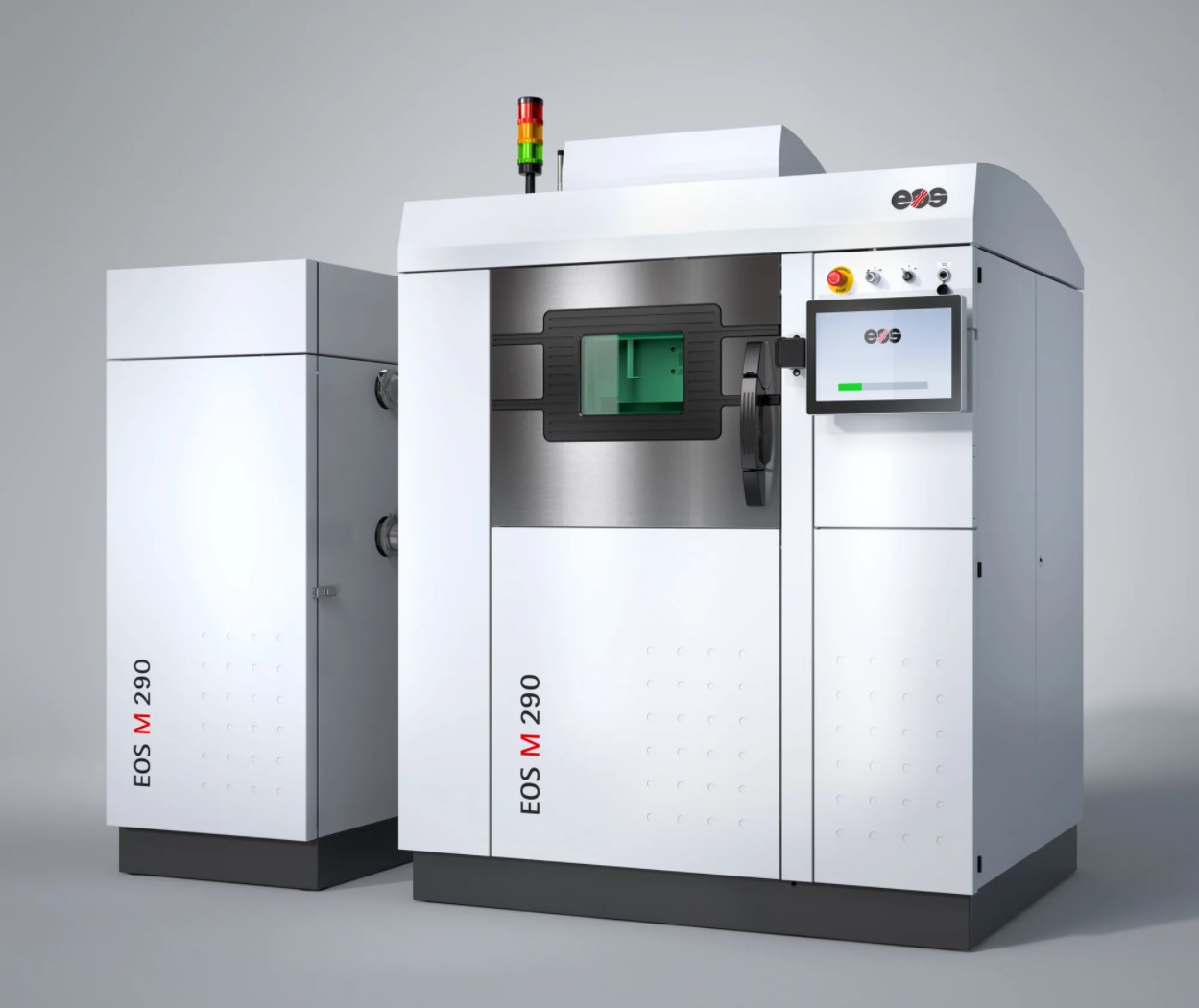PADT, a globally recognized provider of numerical simulation, product development, and 3D printing products and services, today announced it has installed an advanced metal 3D printer from EOS, a global leader in the industrial metal 3D printing technologies, at its headquarters facility in Tempe, Arizona. With this increase in AM process and material capability, PADT can not only develop the highest quality end-use metal products, but also is well-positioned to address some of the current research and development challenges in additive manufacturing. PADT’s wide range of customers in highly demanding industries, most notably aerospace and defense, will see direct benefits of this new capability.
To lead metal additive manufacturing research and development (R&D), PADT also announced it has brought onboard Keng Hsu, engineer, researcher and associate professor at University of Louisville and formerly Arizona State University. Hsu brings more than 20 years of experience in equipment and facility operations, engineering R&D, engineering project execution and management in areas of advanced manufacturing of polymers, metals, and semiconductors. He has performed in-depth R&D contracts on 3D printing process and material development for some of the world’s largest technology organizations including Intel, Northrup Grumman, Salt River Project, the Department of Defense, and NASA.
“Metal 3D printing has reached a level of maturity that enables the production of end-use components and is now one of the fastest-growing manufacturing sectors in the world,” said Rey Chu, co-founder and principal, PADT. “The addition of the powerful EOS M290 printer to our portfolio expands the already extensive list of 3D printing capabilities and services we offer our customers. Our investments in technology and the addition of additive manufacturing veteran Keng Hsu also improves our ability to perform in-depth R&D on the potential of metal 3D printing.”
The EOS M 290 is a highly productive, and well-established mid-size AM system with a broad portfolio of metals for production of high-quality components, and for material and process R&D. PADT will initially run two of the machines most popular and versatile metals – stainless steel and nickel super alloy. The system also features a host of software tools, including its comprehensive monitoring suite, which enables quality assurance of all production- and quality-relevant data in real-time. Hsu will lead PADT’s R&D involved with the EOS machine and all other aspects of the company’s work in 3D printing R&D and consulting.
“The innovation made possible by metal 3D printing and in the technology itself is yet to be fully realized across many industries, namely aerospace,” said Hsu. “I’m grateful for the opportunity to join a leader in the industry and further my research on the subject to advance PADT’s presence in the field and services for our customers.”
PADT has been the Southwest’s premier additive manufacturing expert since it was founded in 1994 and continues to invest in innovative metal and polymer 3D printing systems, as well as talent, to better serve its customers. The company is ITAR registered and its quality system is also AS9100D (2016) and ISO9001:2015 certified to better serve the aerospace and defense industry. As an Ansys Elite Channel partner, PADT can also bring their extensive simulation experience to better design parts to take advantage of laser powder bed fusion and to optimize the build processes itself.
As 3D printing technology has advanced, PADT has seen an increase in the industry’s use of 3D scanning and printing for end-use parts. Metal 3D printing provides many benefits to aerospace and defense companies, including lighter, cheaper parts made much faster and with fewer constraints than with traditional manufacturing methods.
A full list of the EOS M 290’s specifications can be found on PADT’s website here. For more information on PADT and its capabilities in metal and plastic 3D printing, visit www.padtinc.com.




